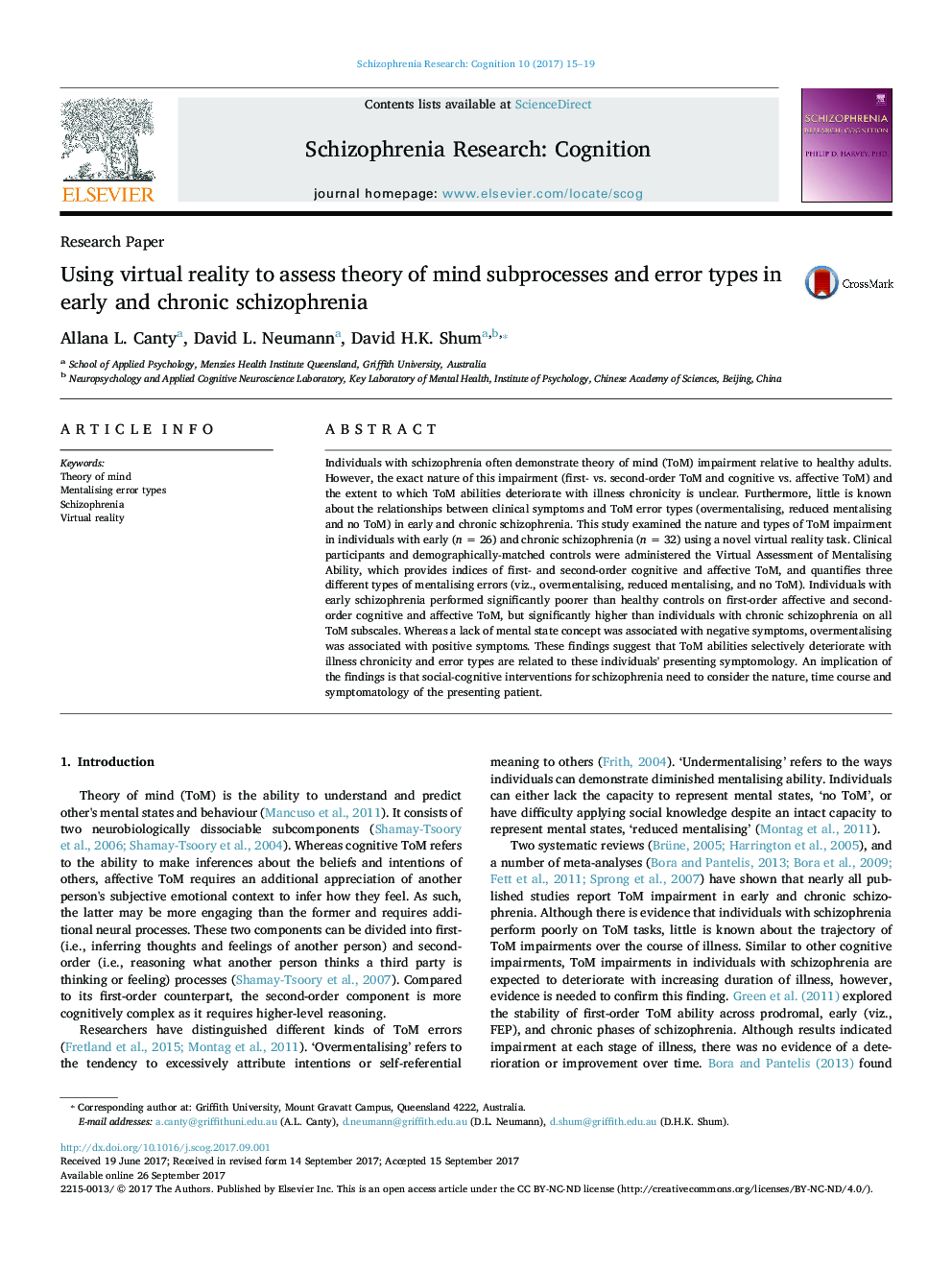| Article ID | Journal | Published Year | Pages | File Type |
|---|---|---|---|---|
| 5722783 | Schizophrenia Research: Cognition | 2017 | 5 Pages |
Individuals with schizophrenia often demonstrate theory of mind (ToM) impairment relative to healthy adults. However, the exact nature of this impairment (first- vs. second-order ToM and cognitive vs. affective ToM) and the extent to which ToM abilities deteriorate with illness chronicity is unclear. Furthermore, little is known about the relationships between clinical symptoms and ToM error types (overmentalising, reduced mentalising and no ToM) in early and chronic schizophrenia. This study examined the nature and types of ToM impairment in individuals with early (n = 26) and chronic schizophrenia (n = 32) using a novel virtual reality task. Clinical participants and demographically-matched controls were administered the Virtual Assessment of Mentalising Ability, which provides indices of first- and second-order cognitive and affective ToM, and quantifies three different types of mentalising errors (viz., overmentalising, reduced mentalising, and no ToM). Individuals with early schizophrenia performed significantly poorer than healthy controls on first-order affective and second-order cognitive and affective ToM, but significantly higher than individuals with chronic schizophrenia on all ToM subscales. Whereas a lack of mental state concept was associated with negative symptoms, overmentalising was associated with positive symptoms. These findings suggest that ToM abilities selectively deteriorate with illness chronicity and error types are related to these individuals' presenting symptomology. An implication of the findings is that social-cognitive interventions for schizophrenia need to consider the nature, time course and symptomatology of the presenting patient.
